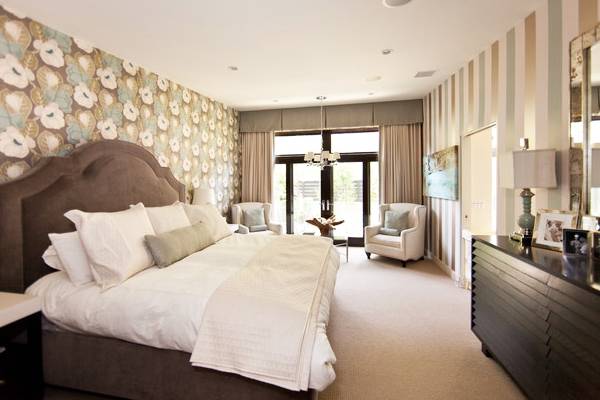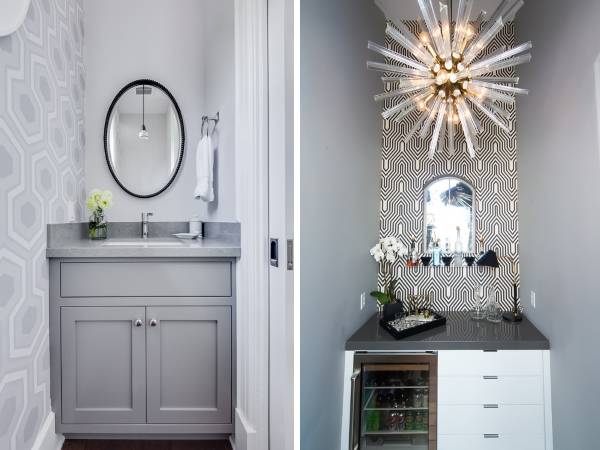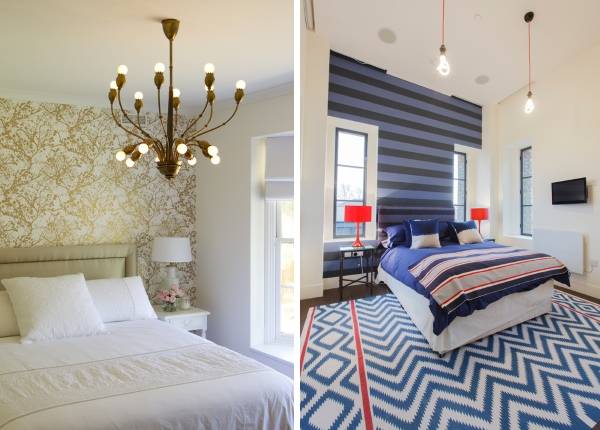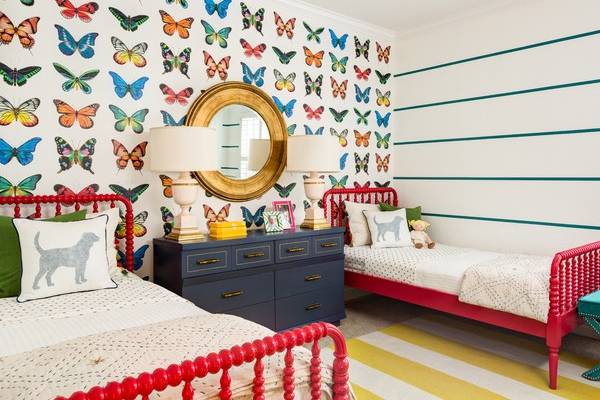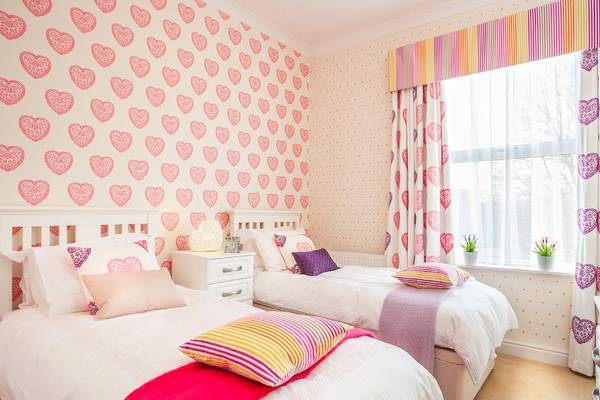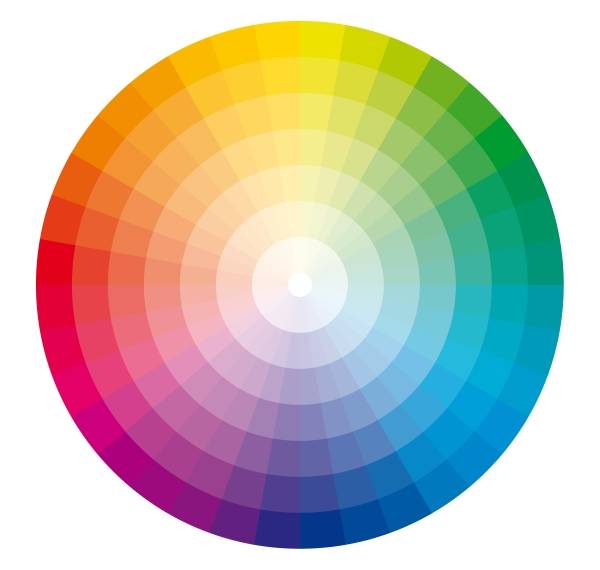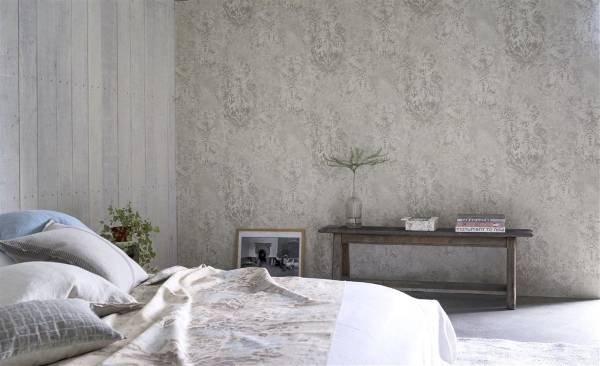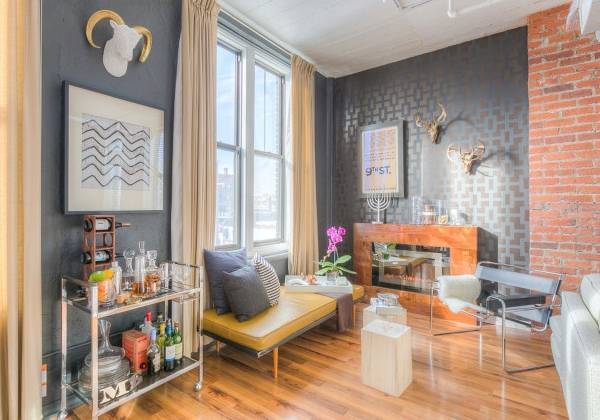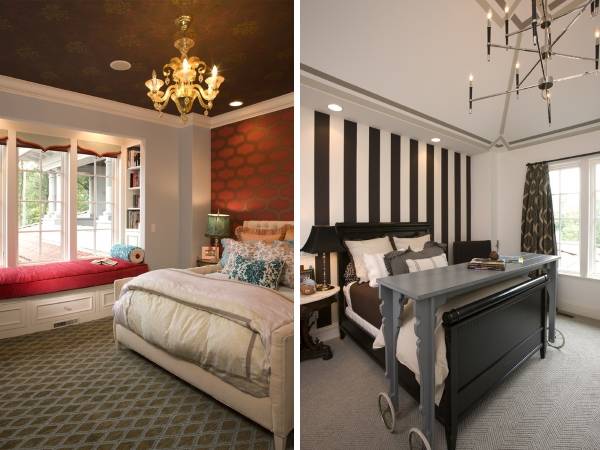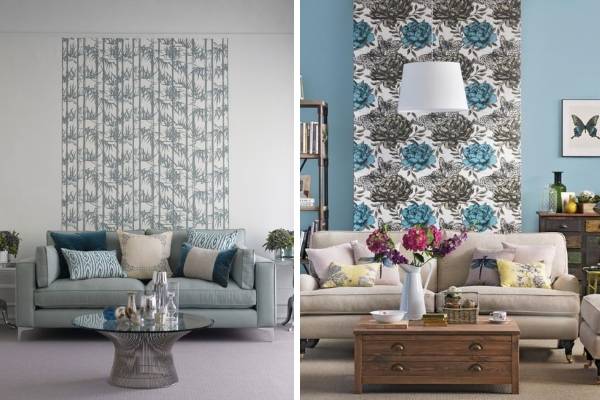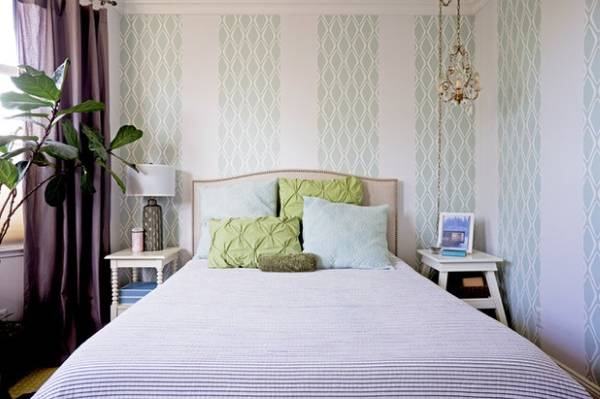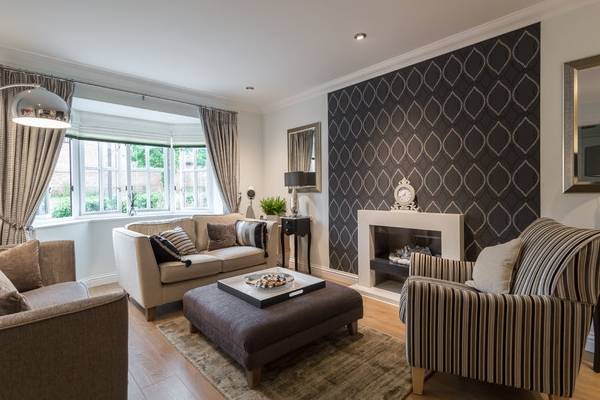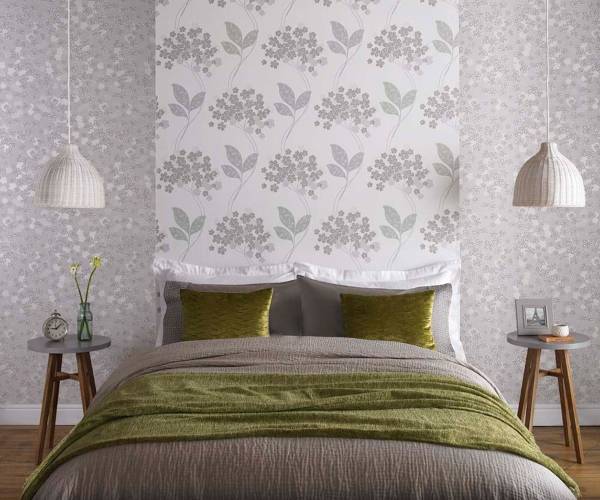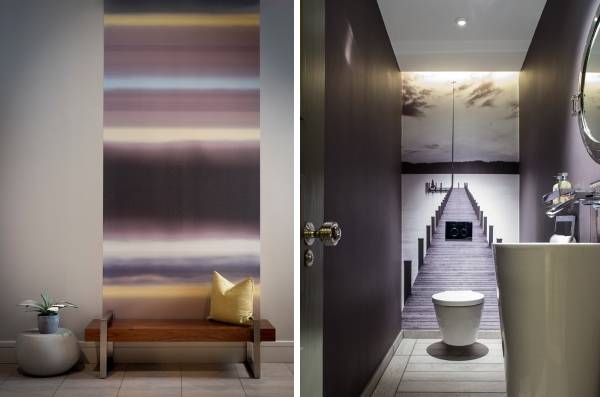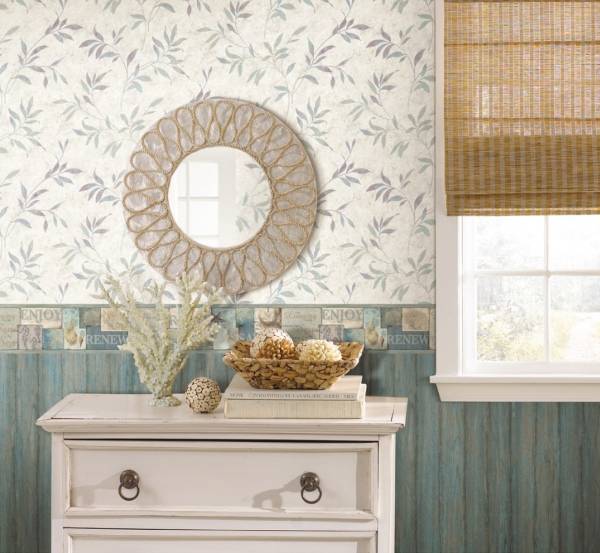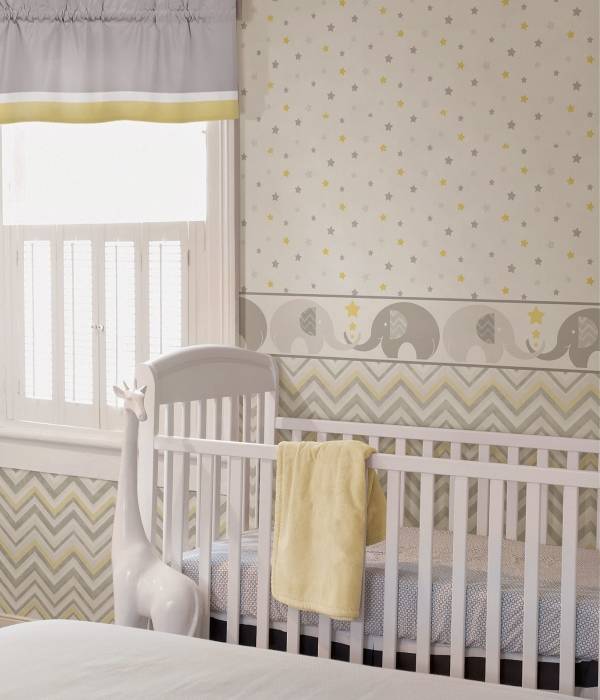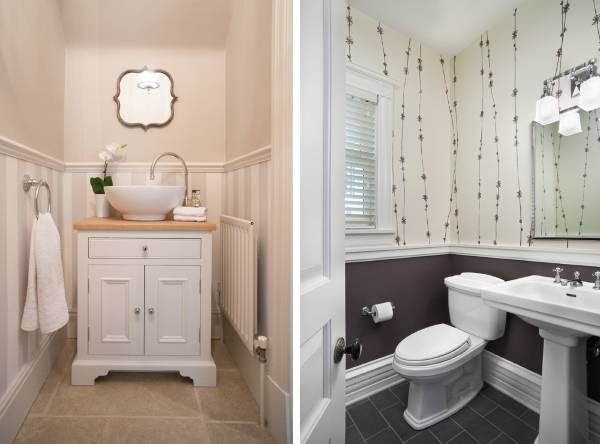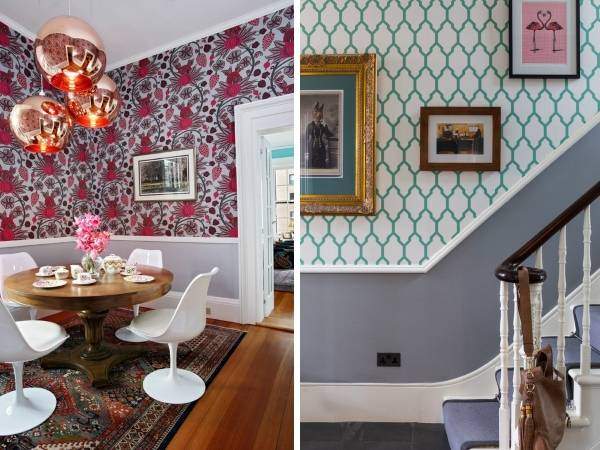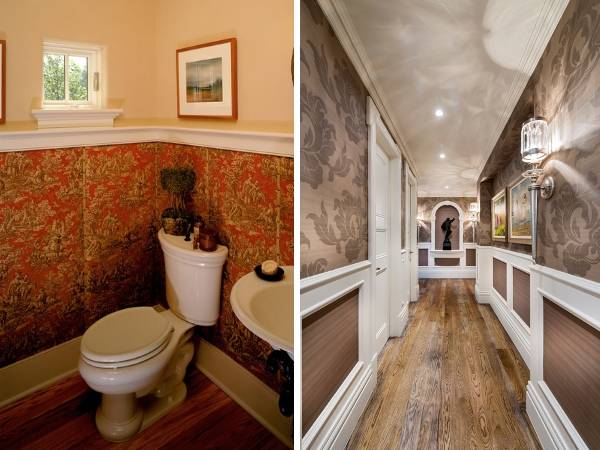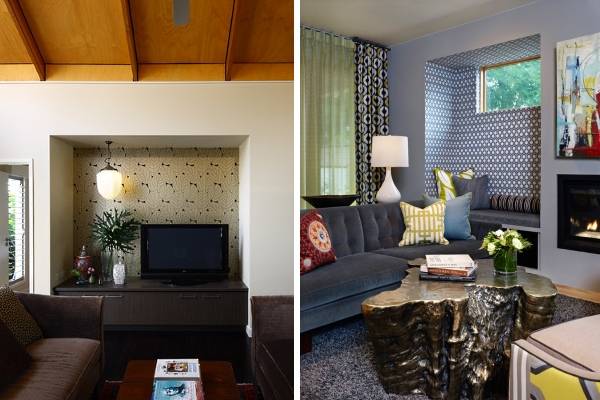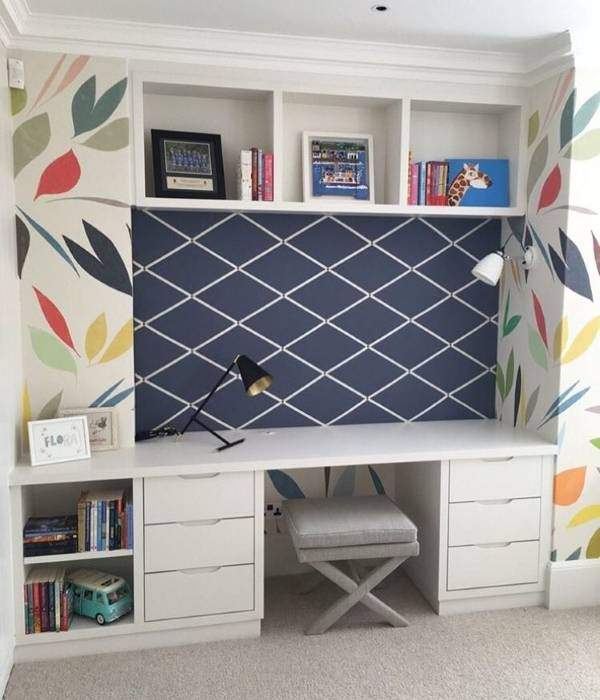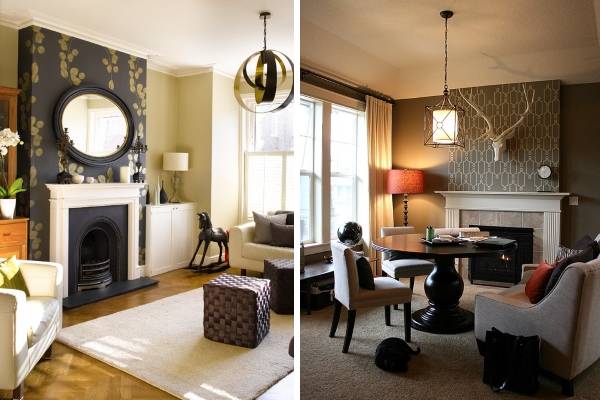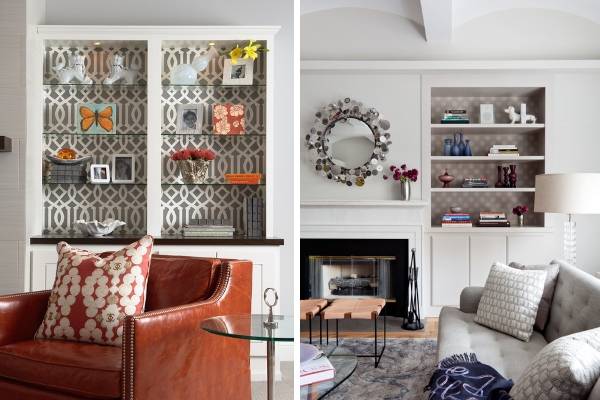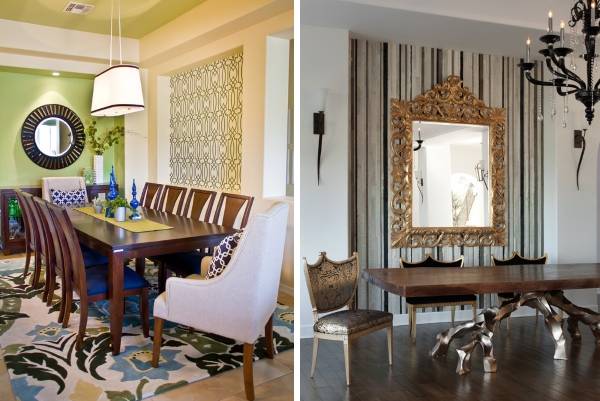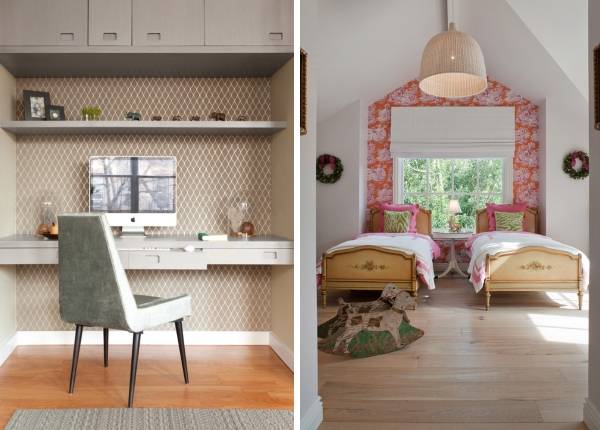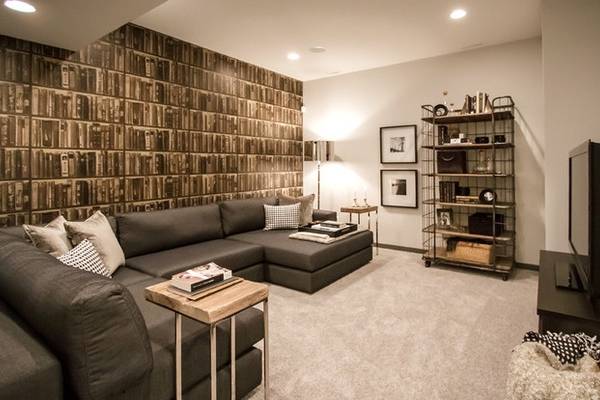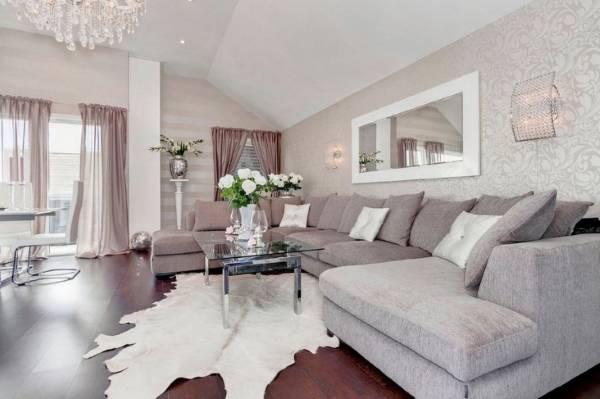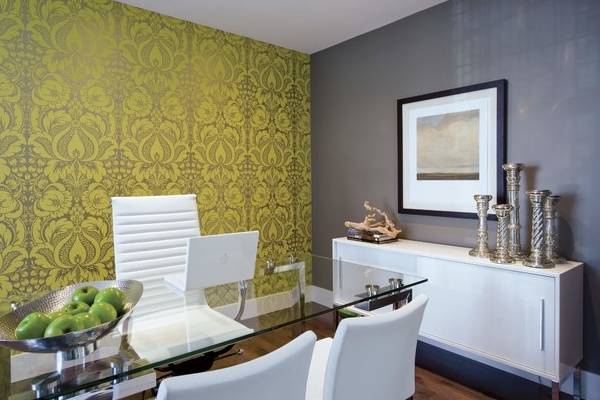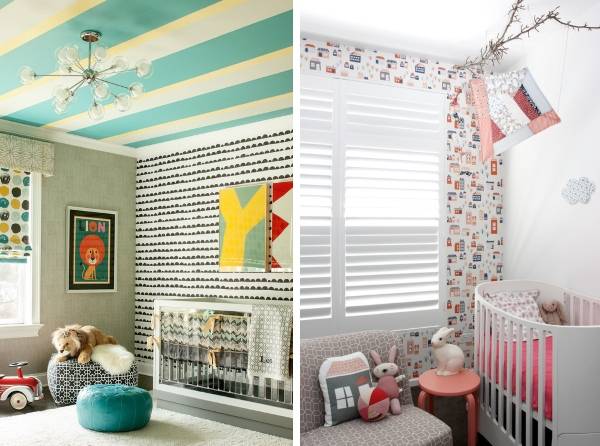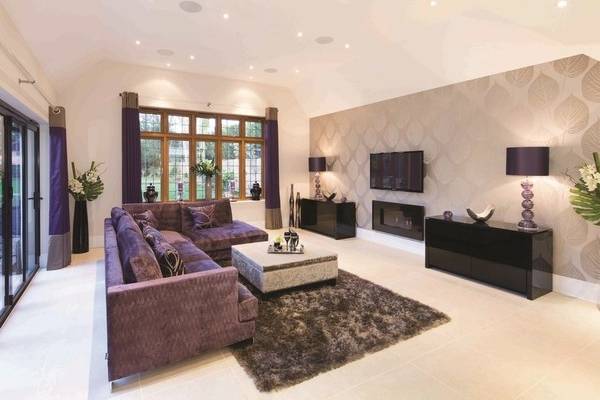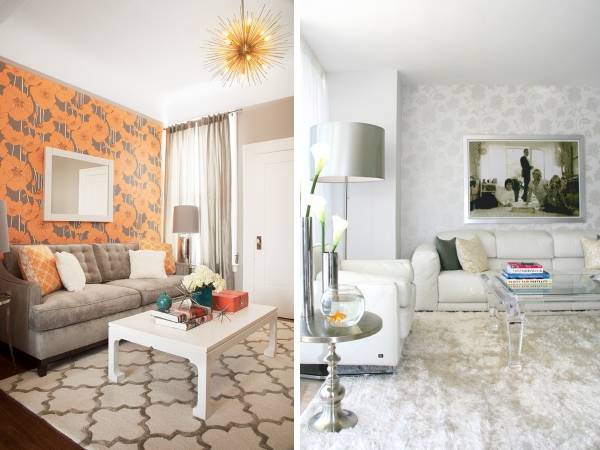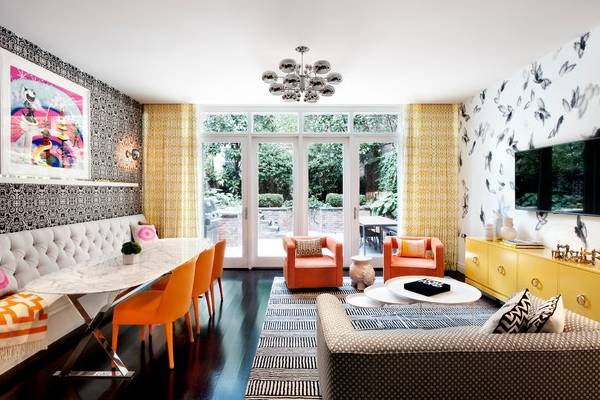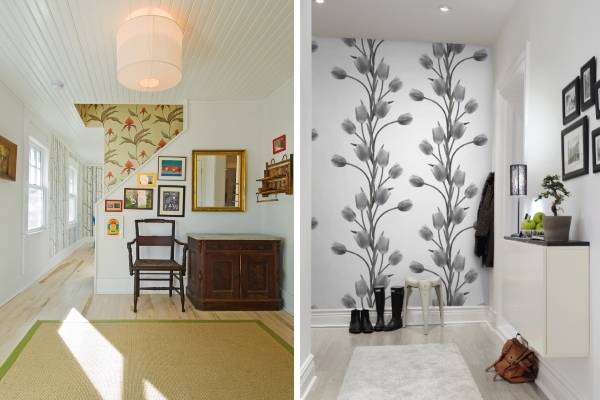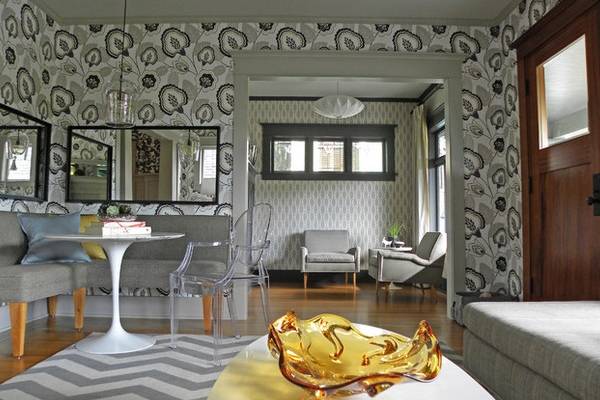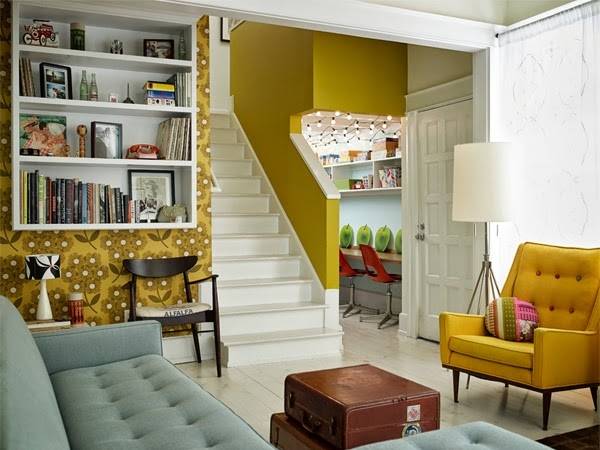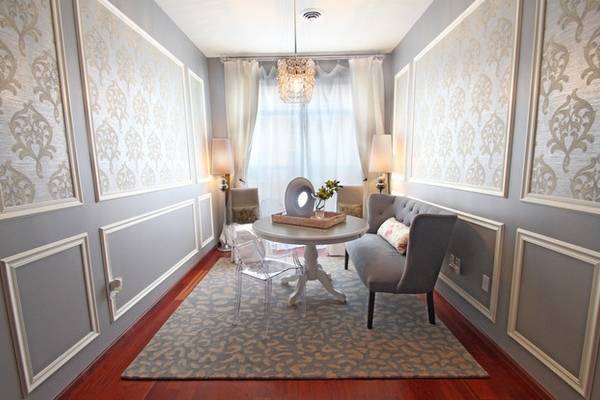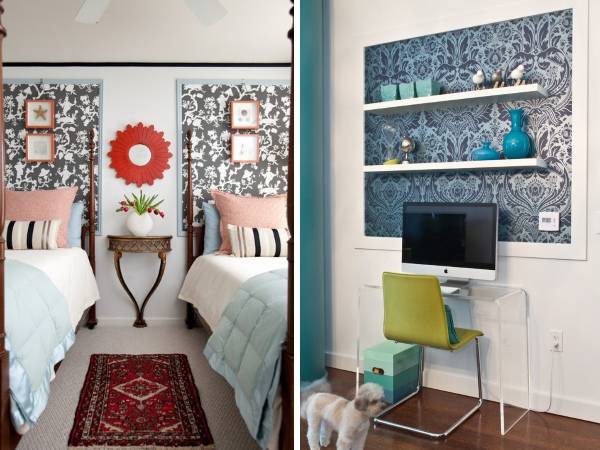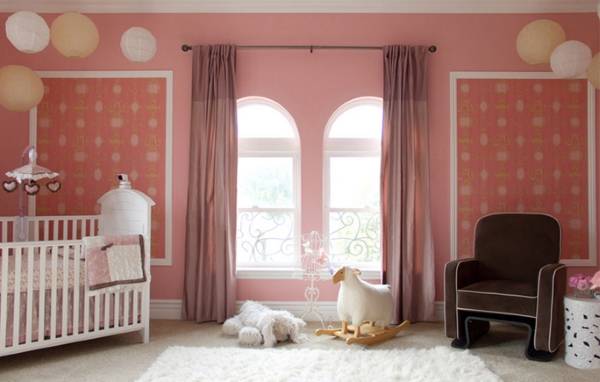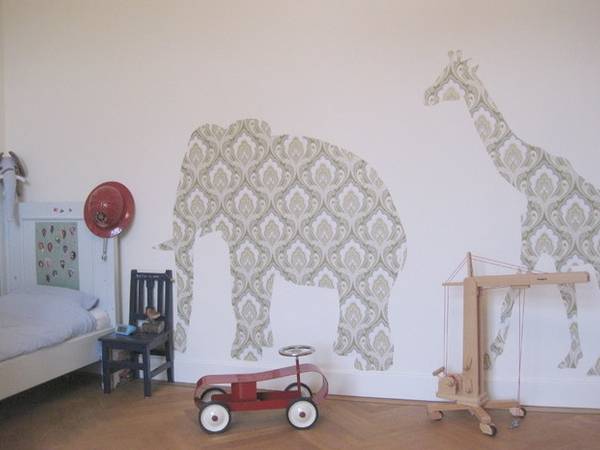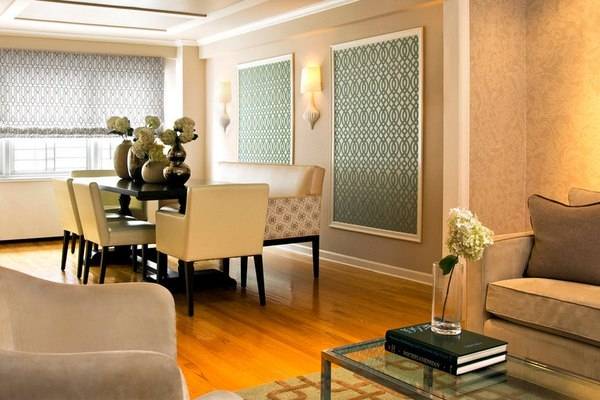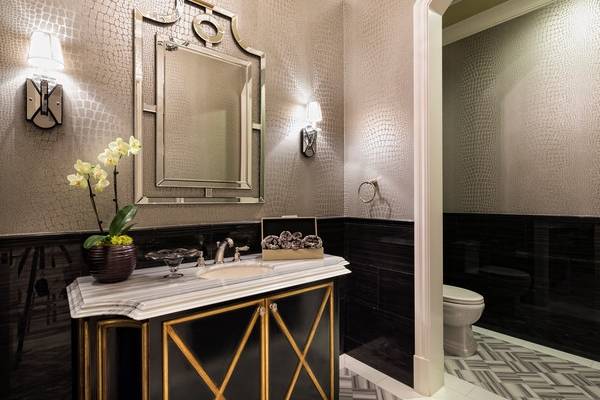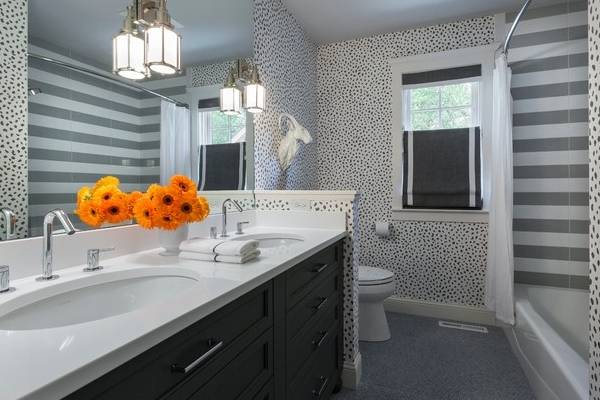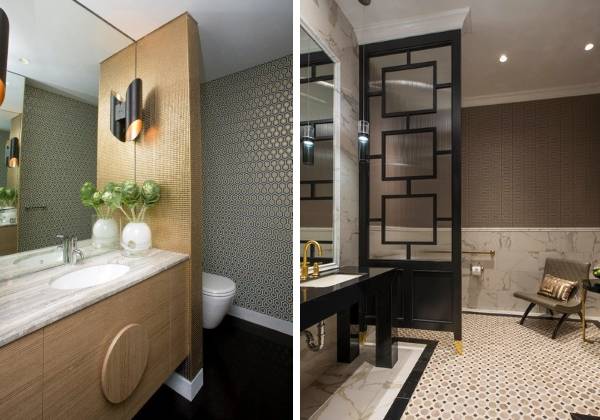Wallpaper is one of the most popular types of wall coverings today: they are relatively inexpensive and allow you to implement any design ideas. So, recently it has become very fashionable combination of wallpaper in the interior. Different ways of combining wallpaper can give the room an original look, zone the space, visually adjust its proportions and even reduce repair costs: leftover wallpaper is usually sold at discounted prices. In this article, you will learn how to combine wallpaper in a single room design. See 45 photos with examples of successful combinations and take note of the best ones!
Combination of wallpaper in one room: basic principles
The combination of wallpaper in the interior is not a new idea. But since there are so many wallpaper models on the market today with unusual textures and effects that remarkably emphasize each other, this design move is experiencing a new peak of its popularity.
To decide how best to combine wallpaper in a particular room, before starting repairs, you should evaluate its features such as shape, ceiling height, location of windows and doors.
In large and spacious rooms with high ceilings, you can safely apply any combination of wallpaper from those that will be given to you later in this article. The main problem of spacious interiors is the creation of comfort. The combination of wallpaper with two different patterns will help you solve this problem without the use of excessive amounts of furniture and décor.
For small rooms, a great idea is to combine plain wallpaper without a pattern with bright finishes on some walls. Remember that small patterns visually reduce the size of the wall, and large ones, on the contrary, increase. Similarly, bright and dark wallpapers will help to “shorten” a long wall, and light ones will help to increase a short one. The following photo of the interiors demonstrates how this simple rule works in practice.
In addition, combining wallpaper helps to bring a playful mood to interior design, where it is not recommended to use bright and impressive things. First of all, this applies to bedrooms and children’s rooms. Decorating the wall behind the headboard with beautiful wallpaper with an expressive pattern and / or colors will not be able to excite your psyche before going to bed, but will delight you with its originality in the daytime.
When choosing wallpaper for a combination in the interior, remember that they should not be completely different. The room will look holistic and harmonious if they have at least something in common: color, pattern or texture. In addition, the combined wall coverings should preferably have a total thickness of the material, otherwise the seams between them will not look neat and aesthetically pleasing. A combination of ordinary wallpaper with photo wallpaper is very popular among interior designers. The use of photo wallpaper in the interior visually enlarges the space and improves mood. Wallpaper to order on the website of the company ” is an opportunity to purchase high-quality and beautiful wallpaper without leaving home.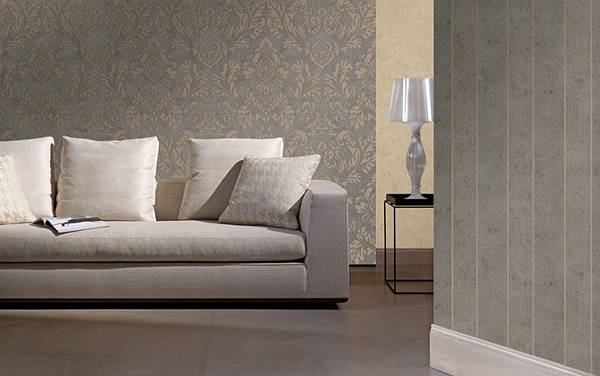
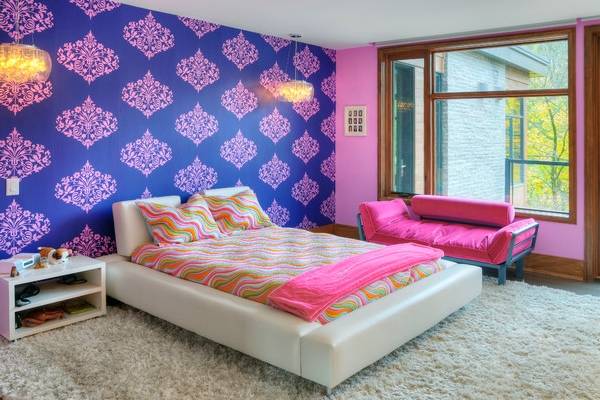
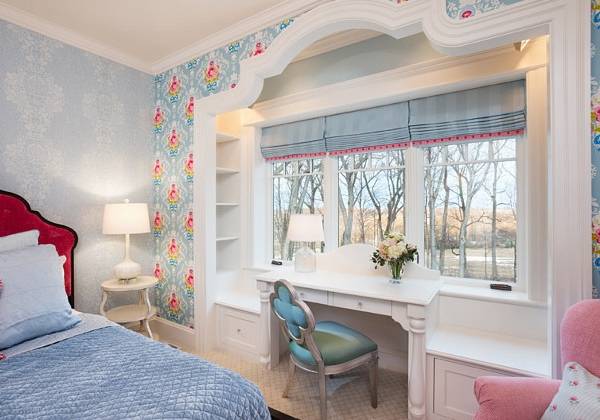
How to combine wallpaper by color in the interior
To easily understand how to combine wallpaper by color, you will need the color wheel scheme shown in the following figure.
Saw? And then everything is even simpler:
- To make the interior look calm and elegant, choose a combination of wallpaper colors from two adjacent sectors of the color wheel.
- For an active and bright interior design, choose wallpaper of opposite shades.
Pasting walls with different wallpapers: combining wallpaper in photos of rooms
There are various ways to wallpaper a room with different wallpapers. Let’s list the most popular of them and take a look at 33 photos of use in the interior:
- Vertical stripes of different wallpapers on the same wall.
- Horizontal separation of the wall with wallpaper and borders.
- Highlighting niches and other architectural features.
- Pasting walls with different wallpaper in one room.
- Decorative inserts of wallpaper on the walls.
First things first:
1. How to combine two types of wallpaper vertically
One of the simplest, but also the most impressive design techniques for today! You can apply alternating vertical stripes of wallpaper of the same width and texture on the walls, or decorate one of the walls with a wide strip that will highlight it.
The first way to combine wallpaper is suitable for any interior, where it will create a noble and refined atmosphere. The second is best used in the living room (on the wall behind the marvelous or for the TV), hallway or any other place where you need to highlight a separate piece of furniture and furnishings.
2. Horizontally combined wallpaper
This option of combining wallpaper is probably familiar to you firsthand. Previously, it was used when it was necessary to save money on wall decoration. In most rooms, the bottom of the wall coverings wears out faster than the top. Updating only the affected area of wallpaper made it possible to significantly reduce repair costs.
Today, this move is also popular in bathrooms, hallways and children’s rooms. At the bottom, durable washable dark-colored wallpaper is used, and at the top – any patterns you like. The wall is divided into 3 parts, the top two of which are pasted over with wallpaper of one design, and the lower one is different. That being said, there are some classic ideas for such a combination:
- The bottom is striped wallpaper, the top is simple wallpaper or with a small pattern;
- The bottom is plain wallpaper, the top is wallpaper with a bright pattern;
- The bottom is a beautiful floral pattern, the top is ordinary wallpaper.
The horizontal seam, which is formed with this combination of wallpaper, can serve as an additional decorative element in the interior. You can use both traditional wallpaper borders and plaster or polyurethane stucco moldings for it.
3. Different wallpaper in one room to highlight niches and protrusions
Many niches and protruding elements (like a chimney from a fireplace) play an important role in the architecture of the space and therefore should not be hidden or somehow disguised. On the contrary, they should be emphasized and highlighted against the background of the common space, pasting over the walls with wallpaper of a contrasting color or pattern. More about how to combine wallpaper in the interior and its niche, the following photos will tell you.
4. How to combine wallpaper on different walls
Recently we wrote about the fact that wall murals are back in fashion. As a rule, they look most impressive when they occupy an entire wall. To emphasize them, designers use a combination with simple monochrome wallpaper on the rest of the walls.
But how to combine wallpaper on different walls with each other? When entire walls in the interior are decorated with different wall coverings (with the exception of photo wallpapers and 3d wallpapers, which create the illusion of additional space), this can visually reduce its size. Therefore, most often this combination is used in large rooms, which must be divided into zones. For example, in a children’s room, a play area can be highlighted with bright wallpaper, in the living room – a wall behind the TV, in the office – behind the manager’s chair.
But still, this method of combining wallpaper is used quite rarely, except when it is necessary to emphasize the transition from one room to another. Since today more and more people refuse unnecessary doors and partitions in their home, in order to visually separate one room from another, they are pasted over with wallpaper of different designs. However, the effect of this technique will be spoiled if the walls are very different from each other. Therefore, choose a combination of wallpapers that are close in color or pattern, as in the following photos.
5. Decorative inserts of wallpaper on the walls
How else can you combine wallpaper with each other? One of the interesting trends of recent years is decorative wallpaper inserts, which not only give the interior a stylish touch, but also help hide defects on old wall coverings. As a rule, this is done with the help of wallpaper in a contrasting shade or with expressive patterns. See the photo:
By putting these tips into practice, you can create a truly unique interior. But remember that in complex spaces, such as in the kitchen or bathroom, you can combine wallpaper with tiles, panels and other finishing materials. On the one hand, the use of wallpaper can significantly save you money on repairs, and on the other hand, finishing complex areas with tiles will extend its validity by several years. Good luck!

